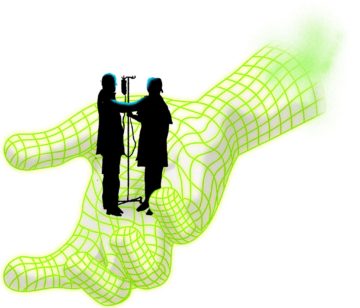Gina Kolata in The New York Times:
 On Nov. 30 last year, OpenAI released the first free version of ChatGPT. Within 72 hours, doctors were using the artificial intelligence-powered chatbot. “I was excited and amazed but, to be honest, a little bit alarmed,” said Peter Lee, the corporate vice president for research and incubations at Microsoft, which invested in OpenAI. He and other experts expected that ChatGPT and other A.I.-driven large language models could take over mundane tasks that eat up hours of doctors’ time and contribute to burnout, like writing appeals to health insurers or summarizing patient notes. They worried, though, that artificial intelligence also offered a perhaps too tempting shortcut to finding diagnoses and medical information that may be incorrect or even fabricated, a frightening prospect in a field like medicine.
On Nov. 30 last year, OpenAI released the first free version of ChatGPT. Within 72 hours, doctors were using the artificial intelligence-powered chatbot. “I was excited and amazed but, to be honest, a little bit alarmed,” said Peter Lee, the corporate vice president for research and incubations at Microsoft, which invested in OpenAI. He and other experts expected that ChatGPT and other A.I.-driven large language models could take over mundane tasks that eat up hours of doctors’ time and contribute to burnout, like writing appeals to health insurers or summarizing patient notes. They worried, though, that artificial intelligence also offered a perhaps too tempting shortcut to finding diagnoses and medical information that may be incorrect or even fabricated, a frightening prospect in a field like medicine.
Most surprising to Dr. Lee, though, was a use he had not anticipated — doctors were asking ChatGPT to help them communicate with patients in a more compassionate way. In one survey, 85 percent of patients reported that a doctor’s compassion was more important than waiting time or cost. In another survey, nearly three-quarters of respondents said they had gone to doctors who were not compassionate. And a study of doctors’ conversations with the families of dying patients found that many were not empathetic. Enter chatbots, which doctors are using to find words to break bad news and express concerns about a patient’s suffering, or to just more clearly explain medical recommendations.
More here.
